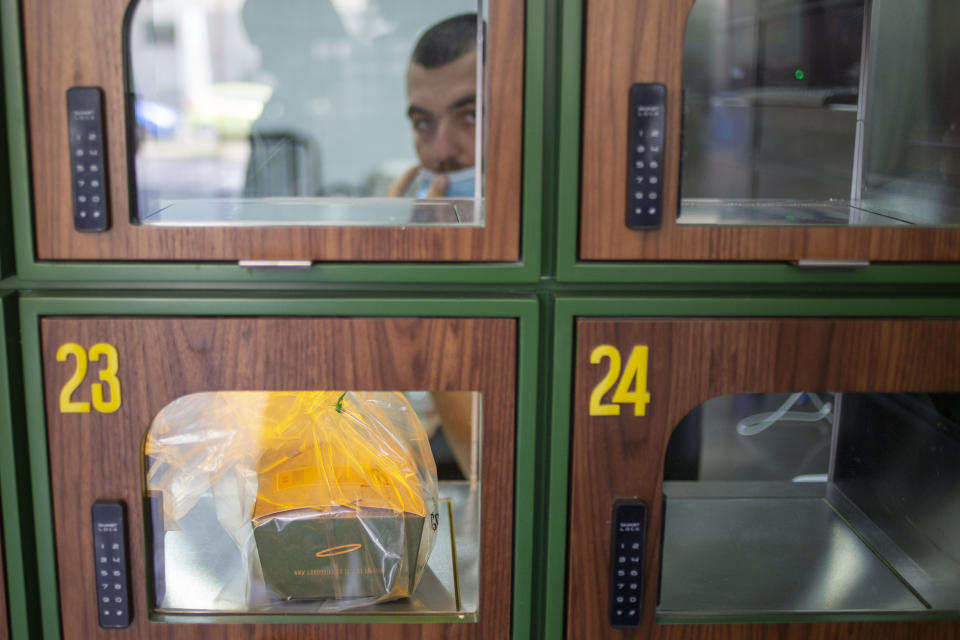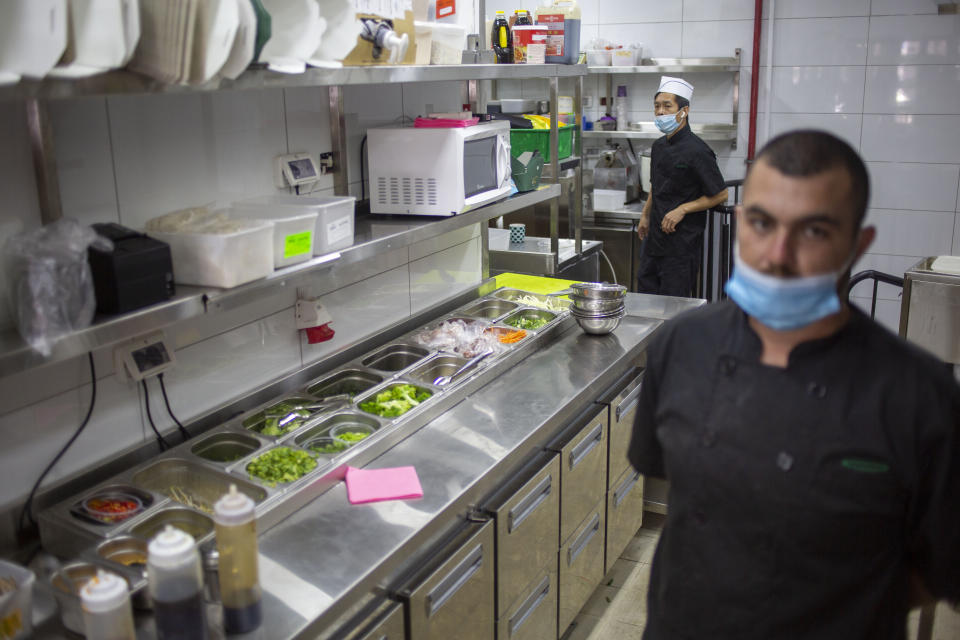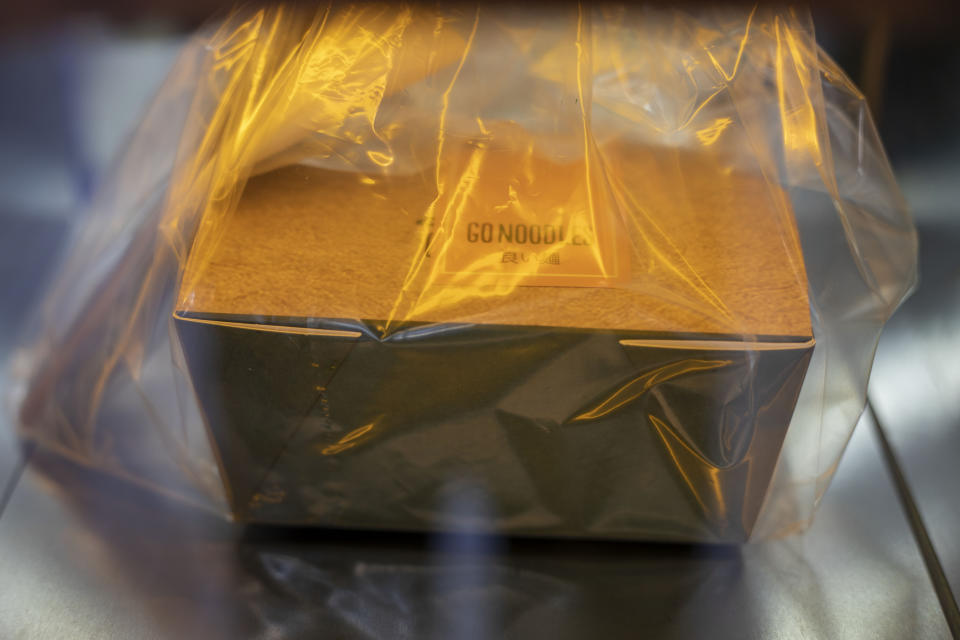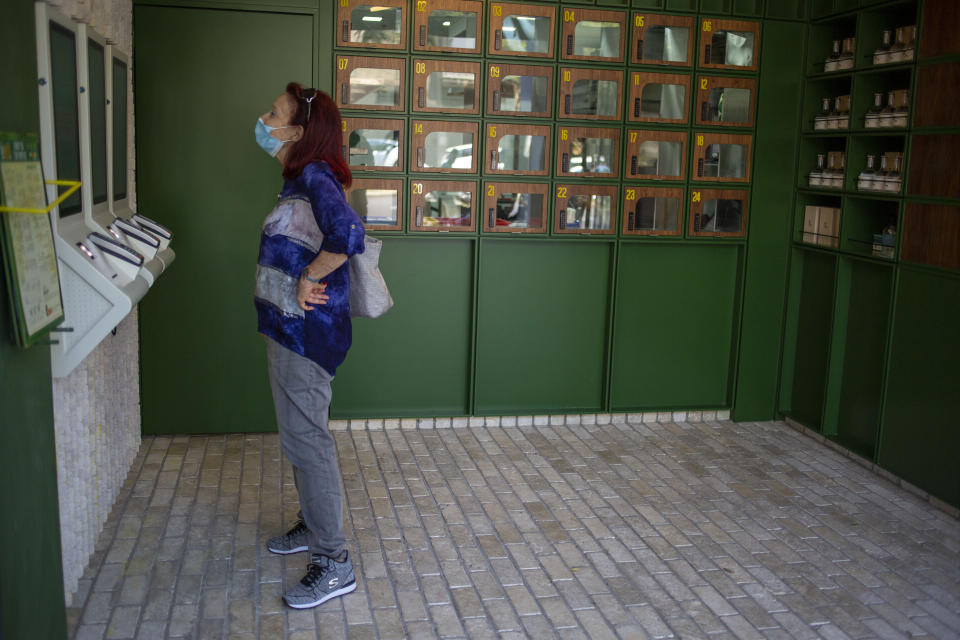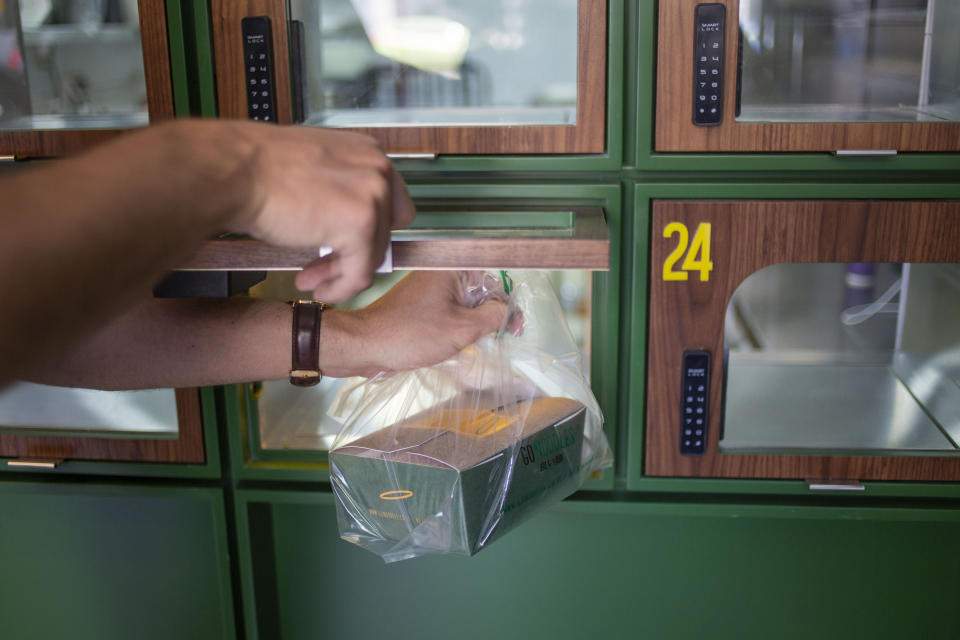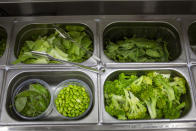No servers, no tables: Israeli cafe is pandemic-friendly
TEL AVIV, Israel (AP) — As restaurants worldwide struggle to stay open in the coronavirus era, a new Tel Aviv noodle chain offers a pandemic-friendly approach: meals on the go with no human contact.
Fast food cafeterias where customers ordered from vending machines, known as automats, once flourished in New York and other cities around the world in the 20th century. The Go Noodles branch, which opened last week, offers a similar experience that is fully digital.
Customers order via application or touch-screen monitors at the store and provide their cellphone number. When their food is ready, they get a text message with the code to one of several glass-paned lockers lining the back wall of the restaurant.
There are no tables, no servers, and little risk of contagion. Customers can pick up takeout orders without coming within 6 feet (2 meters) of any restaurant employees.
“I came up with this concept a year ago, with no connection to the coronavirus, from a business and financial need," said Shmulik Gal, the restaurant's manager. “As fate would have it, the coronavirus broke out a few months ago and this thing gained major significance.”
Israel has reported more than 44,500 cases of the novel coronavirus, including at least 380 deaths, since the beginning of the pandemic. It had largely contained the outbreak by late May following two months of heavy restrictions. But within weeks of the restrictions being lifted, cases began to soar, and now there is talk of a new lockdown.
The virus causes mild to moderate symptoms in most patients, who recover within a few weeks. But it can cause severe illness or death, particularly in older patients or those with underlying health problems.
It is highly contagious and appears to be mainly spread through droplets expelled when people breathe, speak or laugh. Traditional restaurants and bars pose a significant risk because customers sit in close quarters and would have to remove masks to eat and drink. Even takeout often involves close interaction with restaurant employees.
The coronavirus crisis and the resulting lockdowns have forced many small businesses and restaurants to shut their doors in recent months. The nationwide lockdown imposed in March sent Israel's unemployment rate skyrocketing to over 25%, and the recovery has been painfully slow.
Gal said he initially conceived of the idea for his Asian noodle bar as a way to cut costs in an industry where profit margins are wafer thin. But with no end in sight for the pandemic, he said its approach to dining should have broad appeal.
“People are looking for less contact with others, less intermingling, less touching," Gal said. "I think this thing has a lot of strength and people will embrace it."

 Yahoo News
Yahoo News 